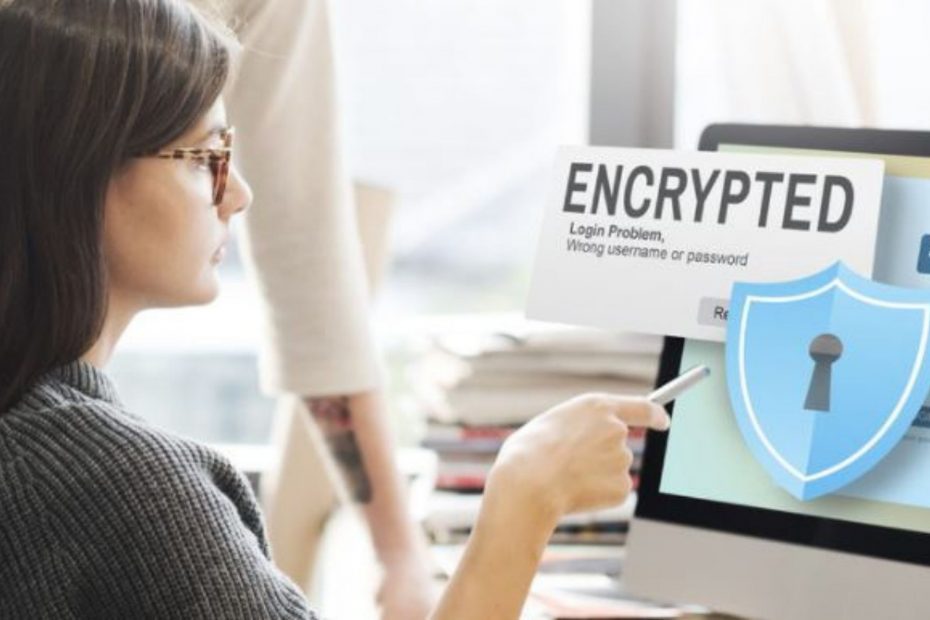The question of who owns your private computer data should have an obvious answer: you own your data. The reality, however, is quite different. There are countless websites tracking you and taking your data without your knowledge. There are hackers who are trying everyday to own your data. And lastly, there is the police who believe that they can take your computer data whenever they want – even when you’re completely innocent and not under investigation!
Encrypting your computer data is a way to take ownership of your data. But is it always good for you? Is some of it bad, even illegal? And who are the parties involved in all this? All that, and more, in this article!
Encrypting your computer data – who is involved?
Many governments across the world are doing what they always do when they try to pull the wool over your eyes: They’re trying to convince people that their privacy is not needed, and that they’ll protect you themselves. Sure, just ask the NSA* about how they’re protecting you…
The problem is that if the government can hack into your computer data, so can anyone else with the knowledge. Hackers are people employed by a different powerful group to steal your data. This makes the case for encrypting your computer data for most people.
Police and lawmakers continue to warn against simple encryption methods like VPNs, or even Facebook’s ‘dark site,’ as they claim that they put the general public at risk. The FBI even say that your encrypted smartphone, or the screen lock on it, helps criminal more than anyone else.
 The other group involved, tech companies, have been forced by government officials to unlock people’s information. You may think ‘great, modern laws are catching modern bad guys.’ Wrong. They are using laws written in the 18th century. Your freedom as a modern person of the 21st Century hasn’t been considered even once. Funny world, eh?
The other group involved, tech companies, have been forced by government officials to unlock people’s information. You may think ‘great, modern laws are catching modern bad guys.’ Wrong. They are using laws written in the 18th century. Your freedom as a modern person of the 21st Century hasn’t been considered even once. Funny world, eh?
Those same tech companies, namely Google and Apple, are now designing products which they can not unlock when pressured to do so. Meaning that police have to do their jobs – they have to investigate, determine guilt, and actually talk to those which they are accusing of crimes.
How is the move to encrypting all computer data changing?
A group that is credited with doing most of the work on getting all computer data encrypted is the Electronic Frontier Foundation. They are now working with big tech players like Cisco, Akamai, and Mozilla to further the cause for encryption.
A large onus falls on people we haven’t talked about yet – website owners. The EFF are putting together a tool for a mid-2015 release called ‘Let’s Encrypt.’ This allows for an encrypted tunnel to be created between websites and Internet browsers at no cost.
To quote Peter Eckersley of EFF:
“Within a year or two, if we complete these projects successfully, Internet users should have their browsing, their e-mail and their messaging encrypted in most or all cases by default.”
This will greatly increase the security of the average user, as well as those who use a
The legal issues with encrypting your computer data
Are there any legal issues with encrypting your computer data and web traffic?
Um, that’s a big, fat NO.
As the EFF themselves, and any good lawyer, will tell you: The onus is on law enforcement to prove that they need access to break your privacy. This frequently involves a warrant, and pressuring tech companies to give up your personal data is not a warrant by any means. Always remember that your data is your business, and no one has any right to take it whenever they want.
That is why tools like the EFF’s Let’s Encrypt, and
*They’re doing it by illegally hacking into your computer data – like illegal wiretaps for your digital information.
Feature image via Rawpixel / Shutterstock

